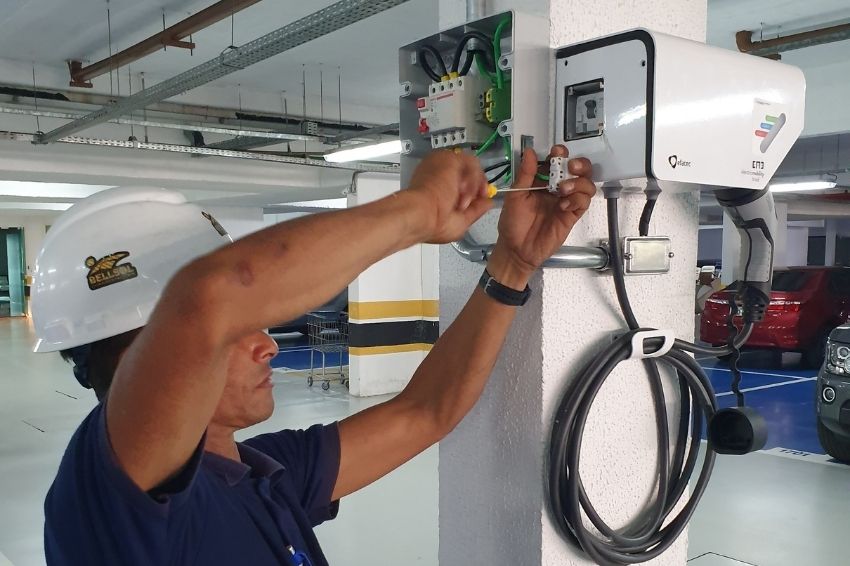Technological advances are gaining even more strength in the face of global efforts to reduce greenhouse gases. Solar energy and electric mobility, for example, are synergistic trends for a sustainable Brazil.
The photovoltaic source, through DG (distributed generation), has become an ally in the country's growth, since the production of energy through solar radiation also contributes to supplying electric vehicle charging stations.
Given this scenario, some companies operating in the photovoltaic market are expanding their investments. As is the case of Bellsol Tecnologia, active in the solar sector in Belém (PA) since 2006.
The company, which currently has more than 5 MW of installed power distributed in micro and mini-generation projects, among homes, businesses and public bodies, changed its strategic positioning, given the needs of the sector with the technological advances presented.
Therefore, in 2020, it found an opportunity to expand the range of service offerings in a specific niche, and today it embraces the trend of electric vehicles and electrical chargers.
“We acquired, through the FNO Sustentável financing line from Banco da Amazônia, the first 100% electric vehicle in the state of Pará, from BYD. From then on, we began to receive demands for the installation of chargers for electric cars, being the first solar energy company in the North of Brazil to offer this service”, said Walber Junior, commercial director at Bellsol.
“Today, we have renowned clients, such as Jaguar, Land Rover and BMW. We are frequently installing these devices in homes and residential buildings to meet the needs of consumers who already have 100% electric and/or hybrid cars”, added Junior.
For the executive, the technology of electric chargers and cars without polluting emissions is the bet of the moment, both for personal use and for the commercial or public sector. “Using means that do not harm the environment not only, as we know, has a positive impact on your pocket, but also does enormous good to the ecosystem”, he highlighted.
“For example, for every 100 km traveled with an electric car the cost is R$ 5 reais. Compared to a combustion vehicle, every 100 km the cost would be R$ 50. Therefore, our customers are obtaining very large savings”, he highlighted.
According to the expert, cars running on fossil fuels still have enormous wear and tear on parts, engines and oil changes. “Electric vehicles have much lower maintenance costs. A combustion vehicle engine, for example, has more than 2,500 parts. An electric car has no more than 300 parts depending on the model”, he concluded.
Electric charger being installed by Bellsol in the parking lot of a building in Belém
Promotion of sustainable development
Marcello Von Schneider, director of BYD Brasil's bus division, highlighted the importance of investments in R&D (Research and Development) for the introduction and promotion of these technologies in Brazil.
“The more data and scientific information we can gather in research of this size, the greater the contribution will be to the popularization of electrified fleets in the country. Important cities in Brazil such as São Paulo, Campinas and Brasília have already started the process of electrifying their fleets”, pointed out Von Schneider.
According to the expert, electric buses, for example, represent a great instrument for reducing local pollutants and greenhouse gases. On average, each common combustion bus consumes 90 liters of diesel in one day of operation. Those powered by electricity prevent the emission of 110 tons/year of CO2 into the atmosphere.
Electric vehicle market
According to the latest report from BNEF (BloombergNEF), sales in the electric car market are being less affected due to the COVID-19 pandemic than conventional vehicle sales. This shows that more and more consumers are opting for more sustainable and ecological models
The company also indicated that the electric vehicle market should imitate renewable energy generation, highlighting its importance during the crisis caused by the coronavirus.

















